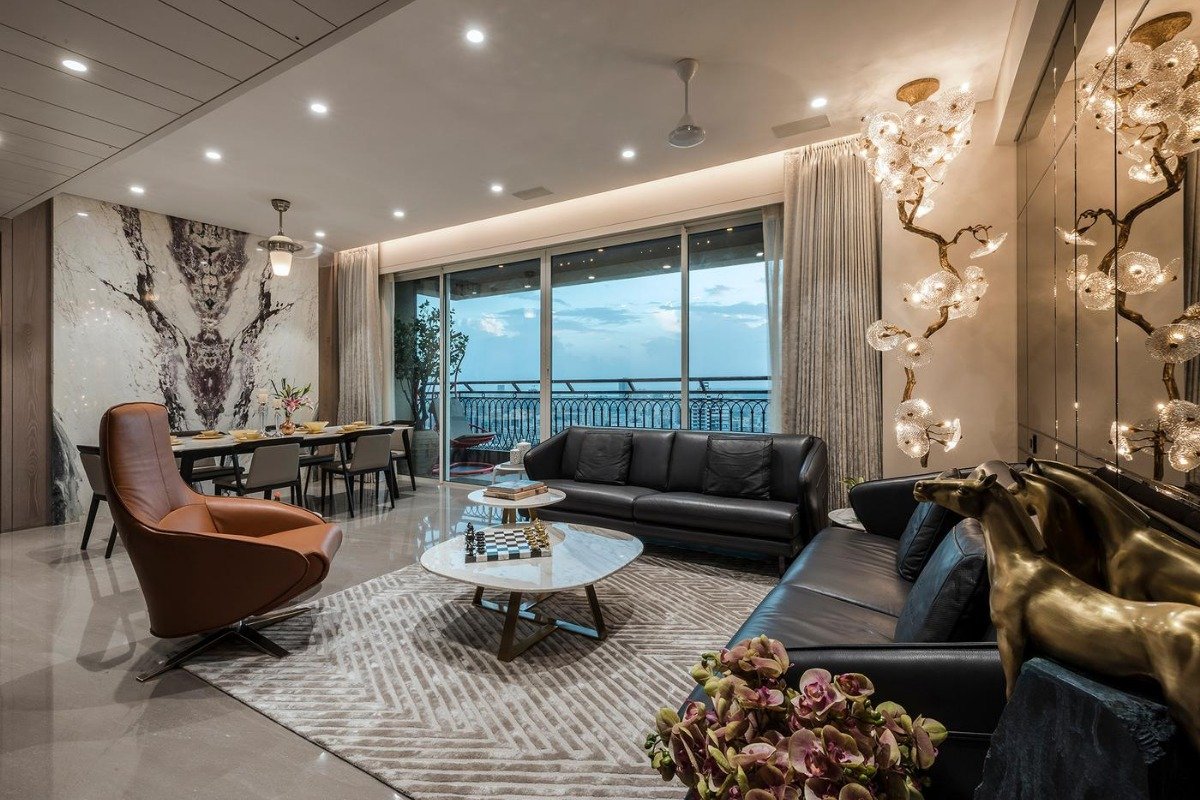In the age of digital connectivity, social media platforms like Pinterest and Instagram have transformed the way we approach and experience interior design. These platforms have not just revolutionized the sharing of images; they have fundamentally altered the way we design our living spaces. Here, Foyer delves into the extensive and lasting influence of social media applications like Pinterest and Instagram on interior design, examining their impact on the design process, design trends, and the broader design community.

Design Inspiration: A Digital Treasure Trove
One of the most remarkable ways Pinterest and Instagram have influenced interior design is by becoming boundless sources of inspiration. These platforms have democratized design by granting users access to a vast array of ideas and concepts. Homeowners, DIY enthusiasts, and professional designers can now explore an expansive collection of styles, colour schemes, furniture arrangements, and decorative accents.
Imagine you’re planning to redecorate your living room. Instead of flipping through magazines or visiting countless showrooms, you can simply open Pinterest or Instagram. These platforms allow you to create digital mood boards, pin your favourite images, and organize your design thoughts effortlessly. For homeowners, this makes the design process more accessible and less overwhelming. Furthermore, interior designers use these platforms as collaborative tools. They can easily share design boards with clients, making it easier to align visions and preferences, ultimately resulting in more successful design projects.

The Rise of Influential Design Trends
Pinterest and Instagram play pivotal roles in the propagation of design trends. Users engage with images and posts, contributing to the evolution of various design elements into full-fledged trends. Popularized by hashtags, curated feeds, and trending topics on Instagram, as well as Pinterest’s algorithm-driven recommendations, design concepts, materials, and styles gain global visibility.
Consider the “Scandinavian” or “Nordic” design style, with its minimalistic aesthetics, clean lines, and natural materials. This style’s popularity soared through these platforms. The global exposure of design trends through social media has led to a more diverse and dynamic design landscape, where ideas from various cultures and regions intersect, resulting in a rich tapestry of design possibilities.

DIY Empowerment and Celebrating Craftsmanship
Social media applications have sparked a renaissance in DIY (Do It Yourself) and craftsmanship within interior design. Pinterest and Instagram are brimming with tutorials, step-by-step guides, and captivating videos showcasing creative projects and custom-made furniture. These platforms empower individuals to take a hands-on approach to design, encouraging personalization and creativity.
Think about the satisfaction of building a bookshelf from scratch or upcycling old furniture into something fresh and unique. Thanks to social media, these DIY endeavours are more accessible and enjoyable than ever. Moreover, the resurgence of DIY has led to a renewed appreciation for artisanal and handmade products. Craftsmen and small-scale craft businesses can now showcase their creations, connect with a broader audience, and contribute to a more diverse and sustainable design industry.

Brand Promotion and Collaborative Opportunities
Social media applications serve as indispensable tools for interior designers, decorators, and brands to showcase their work and products. Instagram, in particular, has emerged as a powerful platform for professionals and companies to promote their services and merchandise. Influencers and design enthusiasts often collaborate with brands, becoming brand ambassadors and reaching wider audiences.
Imagine following your favourite interior designer on Instagram and seeing them collaborate with a furniture brand. This not only introduces you to exciting products but also provides valuable insights into how to incorporate them into your own space. Furthermore, these platforms facilitate connections between individuals and local design professionals, fostering collaborations that might not have occurred otherwise. This interconnectedness has fostered innovation and enriched the design community, creating opportunities for both professionals and design enthusiasts to learn from each other.

Real-time Feedback and Market Insights
Social media applications offer a unique advantage for interior designers and businesses: real-time feedback and market research. By analyzing engagement metrics, comments, and user interactions, designers gain invaluable insights into which design elements resonate with their audience and which do not. This data-driven approach enables more informed design decisions, ensuring that spaces align with current tastes and preferences. Businesses, too, can leverage social media to gauge the popularity of their products and services, helping them refine offerings and marketing strategies. This immediate feedback loop has made the design industry more responsive to consumer demands.

Pinterest and Instagram have undeniably reshaped the world of interior design. They have revolutionized the way design inspiration is discovered and shared, shaped global design trends, empowered DIY enthusiasts, facilitated brand promotion and collaboration, and provided real-time feedback and market insights. As these platforms continue to evolve, they will remain at the forefront of design innovation, fostering creativity, diversity, and accessibility within the field. The fusion of technology and design has brought the world of interior design closer to individuals, making it more relatable and inspiring than ever before. Thanks to social media, interior design is no longer confined to the realm of professionals; it has become a shared and communal experience where everyone can participate and contribute to the ever-evolving world of design.


